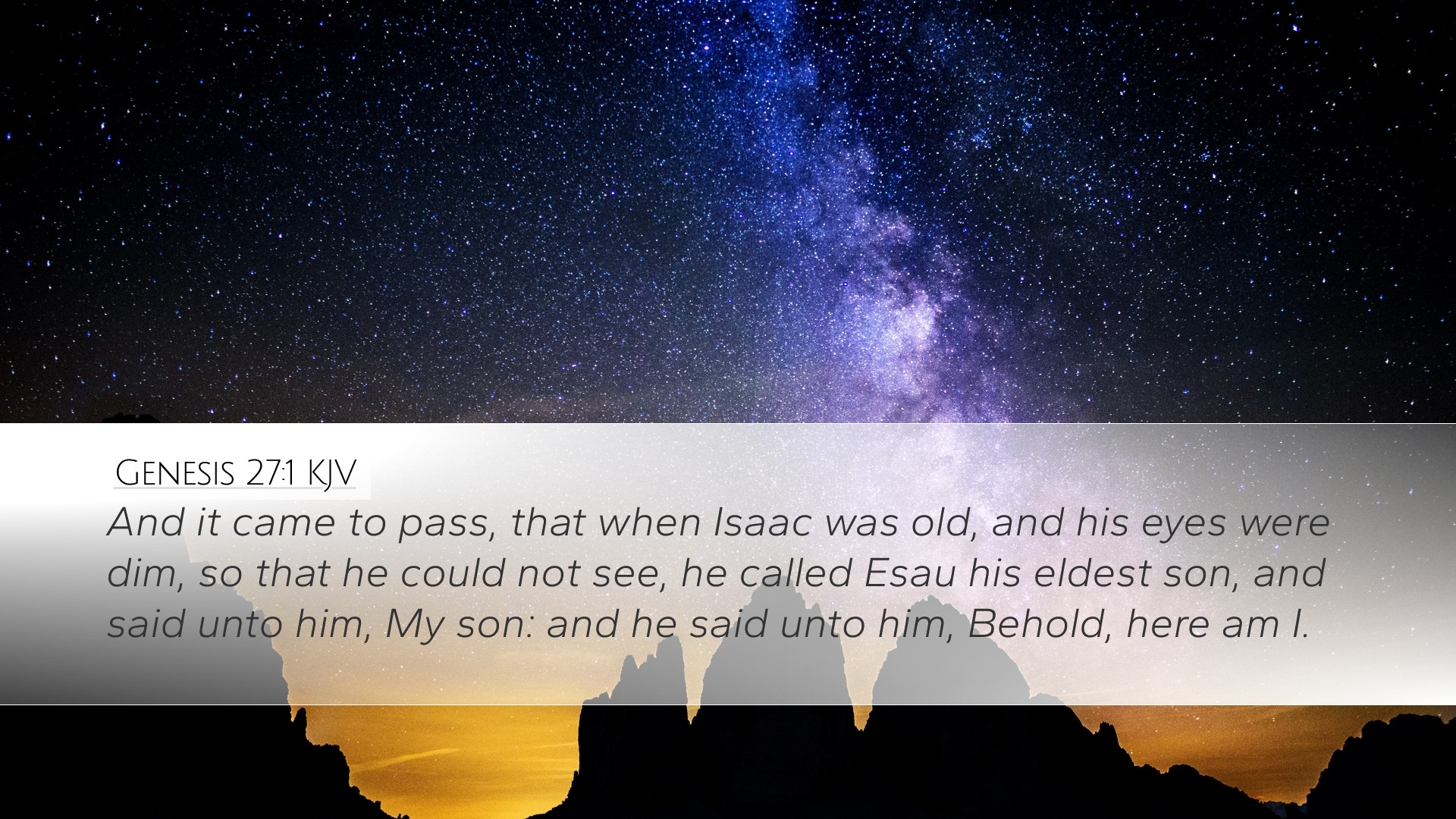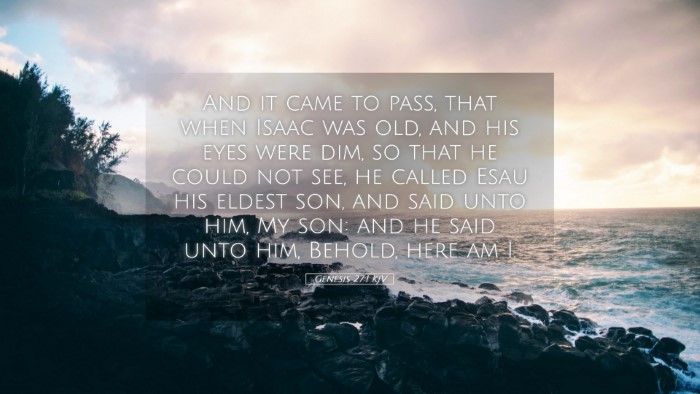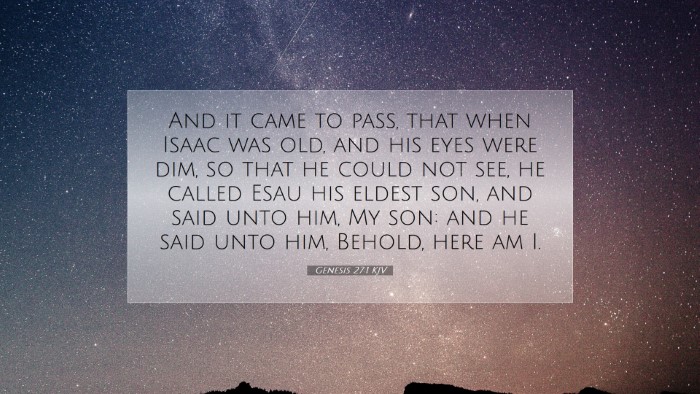Commentary on Genesis 27:1
Genesis 27:1 states, "And it came to pass, that when Isaac was old, and his eyes were dim, so that he could not see, he called Esau his elder son, and said unto him, My son: and he said unto him, Behold, here am I." This verse is pivotal, bridging the narrative of Isaac's life and the unfolding drama of his family. It sets the stage for the critical events of the blessing, which have significant theological and sociocultural implications.
Contextual Analysis
This verse falls within the broader framework of Genesis 27, where the themes of deception and the pursuit of blessing are prevalent. Isaac, at this point, is portrayed as a man who has succumbed to the frailties of old age, largely evoking pity and a sense of impending tragedy within the text.
Isaac's Condition
The phrase "when Isaac was old" signifies not only physical decline but also a transition in patriarchal authority. His "dim eyes" symbolize not just a loss of physical sight but perhaps a spiritual incapacity to discern the rightful heir, indicating that the patriarchate is susceptible to human frailties and misjudgments.
The Role of Esau
Isaac's call to Esau reflects the societal norms of primogeniture. Esau, being the elder of the two sons, naturally assumes the role of primary heir. This choice is steeped in cultural expectation, where the firstborn is ascribed greater blessings and responsibilities. However, this expectation becomes a source of conflict moving forward.
Commentators' Insights
Matthew Henry
Matthew Henry emphasizes the themes of family dynamics and the consequential power of parental favoritism. He notes that Isaac’s preference for Esau, the son who provided him with meals that he enjoyed, reflects a deeper moral disinclination. This preferential treatment ends up sowing discord within the family, highlighting the dangers of favoritism and lack of impartiality in parenting.
Albert Barnes
Albert Barnes offers a perspective on Isaac’s old age and his physical limitations as a metaphor for the waning authority and clarity that often accompanies the later stages of life. He points out that Isaac's inability to see is indicative of not just physical blindness but of the spiritual blindness that can obscure the truth. It sets the stage for the ensuing deception that will ultimately lead to Jacob receiving the blessing that was meant for Esau by divine design.
Adam Clarke
Adam Clarke provides a detailed examination of the familial context, focusing on the complications of the blessing meant for Esau. He highlights the role of divine prophecy given to Rebekah about Jacob being the chosen one. Clarke argues that Isaac’s deliberate choice to bless Esau, despite knowing the prophetic word, showcases human error in attempting to establish one's own will against divine intention.
Theological Implications
The themes presented in Genesis 27:1 resonate deeply with the overarching narrative of God's sovereignty and the complexities of human agency. Isaac's decision-making processes can be perceived as a microcosm of the struggle between divine providence and human will.
The Sovereignty of God
The events that unfold following this verse illustrate God's ability to work through human flaws. Despite Isaac's intentions, the eventual fulfillment of the divine promise through Jacob indicates that God's plans are immutable. This verse invites reflection on the tension between divine sovereignty and human choice, a topic of profound significance in theological discussions.
Lessons for Pastoral Ministry
- Favoritism in Relationships: The consequences of Isaac’s favoritism serve as a cautionary tale for pastors and leaders about the impact of bias and favoritism within communities and families.
- Discerning God's Will: The apparent blindness of Isaac highlights the necessity for leaders to seek God's wisdom and clarity, especially in guiding others in spiritual matters.
- The Role of Prophecy: Understanding how prophetic words can unfold in unexpected ways encourages faithfulness to God’s calling despite contrary circumstances.
Conclusion
Genesis 27:1 is a verse rich in narrative depth and theological significance. It invites both profound reflection and careful consideration as it encapsulates key themes of family conflict, divine purpose, and the intricacies of human relationships. As we engage with this scripture, it unsettles us to consider how we, too, may be blind to divine workings in our lives and communities.


